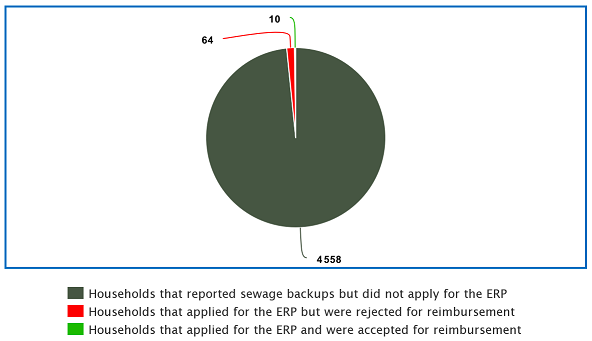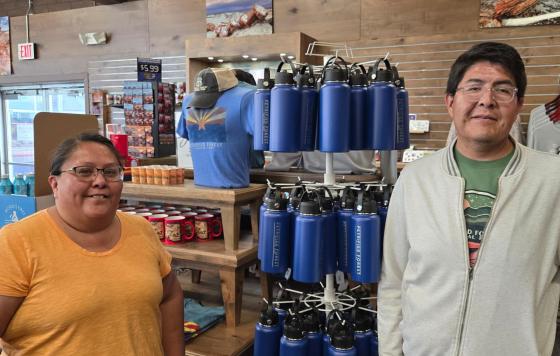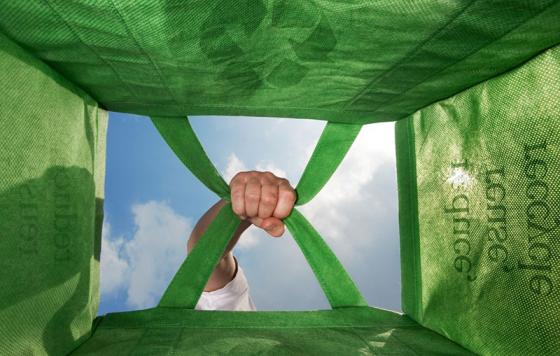
For almost a year, our team has been knocking on doors, visiting community association, and speaking at community festivals in Baltimore City about a subject nobody really wants to talk about: sewage backing up into people's basements. According to 311 call records, this happens to more than 4,500 times in Baltimore City every year, and the results can be severe: thousands of dollars in financial damages, panic and disruption to daily life, exposure to dangerous pathogens, and long-term health risks from mold and mildew in damp, bacteria-infested walls. Read about the kinds of impacts this can have on a household in this interview in the Baltimore Sun with Sean Stinnett of West Arlington, and this interview in the Baltimore Brew with Natasza Bock-Singleton of Violetville.
Last year, Baltimore City was required by the Modified Consent Decree, a legal agreement with the Maryland Department of the Environment and EPA, to launch an Expedited Reimbursement Program: a special program, just for sewage backups, that could help people more quickly recover financial damages from the City when the backup was caused by wet-weather surcharging - a problem that only occurs because the city's sewage infrastructure is old and in disrepair, allowing rainwater to flood the pipes and cause backups and overflows. But a few weeks ago, DPW released information about the first year of the program, and it's not good. Out of 4,500 sewage backups, only 74 applications to the program were logged, and only 10 people got reimbursed. Here are some of the problems we see:
- Very few applications to the Expedited Reimbursement Program have been filed – the program must be more widely advertised. In the first year of the program, there were 4,632 sewage backups reported to 311, but only 74 applications were filed. DPW should advertise it on TV, social media, in newsletters, and via water bill inserts.
- Applications are only accepted if the backup was reported to 311 within 24 hours – this requirement should be dropped. 34% of applicants were denied because the household had not reported the backup within 24 hours. This reporting requirement is arbitrary and an undue burden on people dealing with a catastrophe like a sewer backup.
- The Expedited Reimbursement Program only applies to residences – it should also accept applications for reimbursement from community organizations. Sewer backups can happen in any building, and can pose a real financial burden for community organizations, religious institutions, small businesses, etc.
- The Expedited Reimbursement Program will only reimburse costs up to $2,500 – this cap should be raised or removed entirely. Recovering from a sewage backup can cost significantly more, and all reasonable costs should be covered.
- The Expedited Reimbursement Program only applies to sewer backups caused by wet weather – this restriction should be removed. 43% of applicants were denied reimbursement because DPW determined their backup was not caused by wet weather, even when it happened during or shortly after a rainstorm. All backups caused by problems in city-owned sewage infrastructure should be eligible for reimbursement.
- The Expedited Reimbursement Program will only reimburse for costs of cleaning up – it should assist with all costs of a sewer backup. Property damage can be the most expensive cost of a backup, particularly if furniture, drywall, HVAC systems, or hot water heaters are impacted. This program should include reimbursements for property loss and damage in addition to cleanup costs.
- Baltimore City should make direct cleanup assistance available to households experiencing sewage backups. Exposure to raw sewage is a significant health risk, and the city should make trained contractors available for cleanup at the city’s expense so that residents aren’t put in dangerous situations cleaning it up themselves.
- Baltimore City does not have a deadline for stopping sewage backups from happening entirely. The Department of Public Works needs to have a plan for repairs and maintenance that will stop sewage from flooding people's homes.
Right now, the Maryland Department of the Environment (MDE) and Environmental Protection Agency (EPA) are looking for comments from Baltimore City residents about your experiences with sewage backups and the Expedited Reimbursement Program as well as any recommendations you have for changing this program to make it more effective. This is an opportunity for you to shape how Baltimore City responds to this critical health risk and financial burden in the future.
To speak in person: attend the public listening session on Monday, September 30, 6-8PM, 1800 Washington Blvd. RSVP here.
To submit written comments: click here.
To develop your spoken or written comments: click here for our guide to developing testimony.
Update: MDE's comment period is over, but the Baltimore City Council is holding hearings and taking testimony on sewage backups. Click here to write a comment to the City Council about your experience and recommendations.


